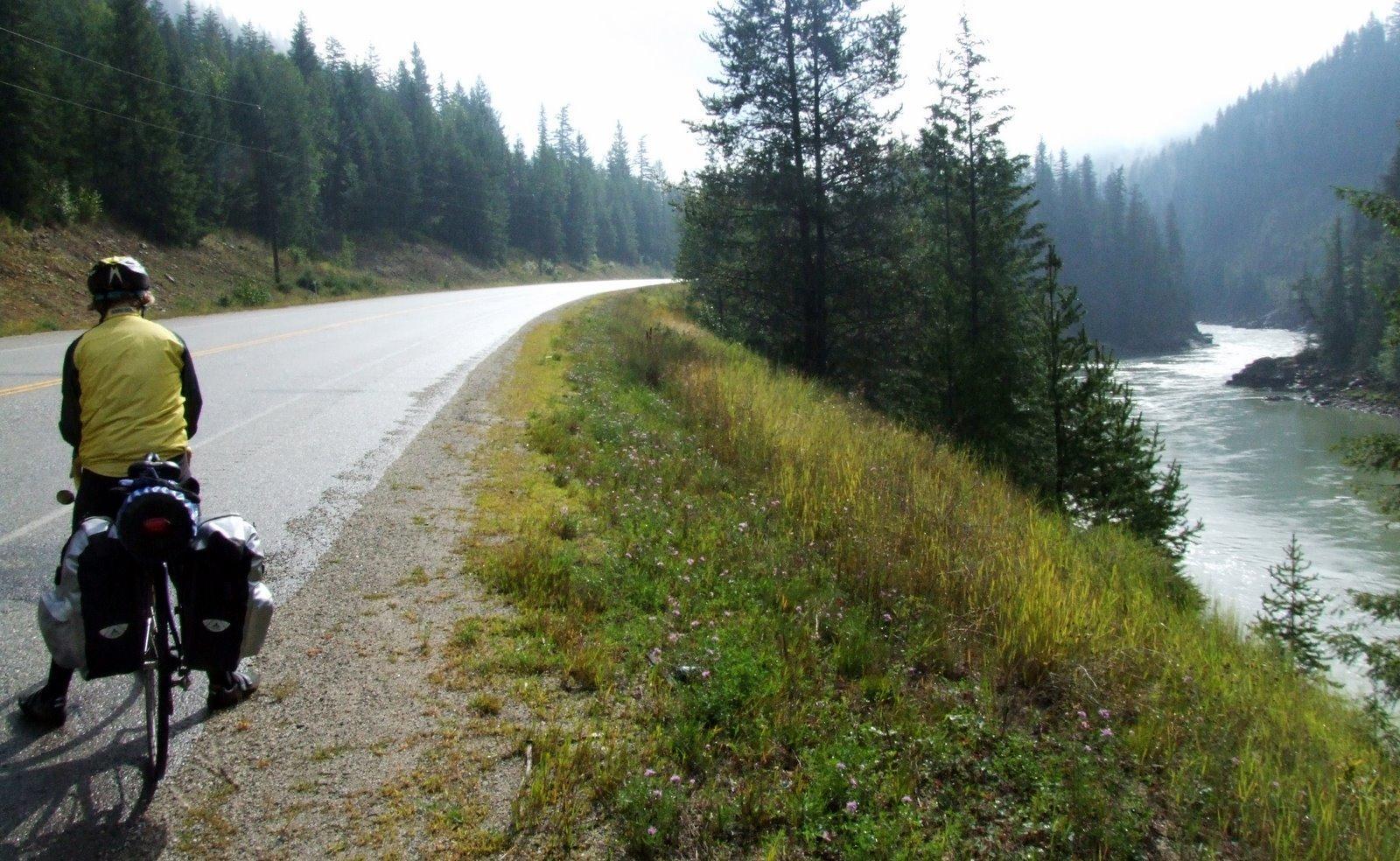August 23: Blue River to Valemount, British Columbia

| Heart | 2 | Comment | 0 | Link |
I WENT TO SCHOOL with a boy called Glauco Ricci. His middle name was Ercole - Hercules - which embarrassed him a great deal. I, on the other hand, thought it was wonderful because one of the Italian stars of the era was also called Ercole, and Glauco and I were the only boys in the school who cared about bike-racing.
Glauco's family ran an ice-cream parlour opposite the nearest Tube station. This was in the northern outskirts of London. When Italy came into the war against Britain, people used to hurl bricks through the windows. Antonio, the father - Glauco hadn't been born then - had to put up signs insisting "We are British!" It was his own father who had come from Italy.
I don't think Britain did much more about Italians and Germans in the country during the war than lock up some and keep an eye on the rest. There weren't any Japanese folk and, pretty much, there still aren't now. "Asian", in Britain, means people from India and Pakistan.
Canada, like the USA, rounded up anyone with a Japanese name and locked them up far from anywhere. Today we rode through Albreda, where it happened.
Albreda, named after Lady Albreda Lyveden, although I know not why, is the only place between Blue River and the flourishing little town of Valemount. That's 95km without a house, let alone a coffee stop or an ice-cream parlour. I don't know what there used to be at Albreda, other than an internment camp, but it offers little today apart from a small green sign pointing in its direction. Canada has chosen not to put up a board to mark this part in its history.
We may see a few signs by the road tomorrow. In preparation for dealing with the so-called Japanese of the second war, Canada locked up 5,000 Ukrainians in the first. Some of the 24 camps were around here.
The government took them prisoner and used them as cheap labour to clear land. It benefited the government and it cost the private owners of the land next to nothing. The Ukrainians were to be paid 20 to 30 cents a day but often they didn't get it. Golfers at Banff Springs may reflect that nine holes of their course were cleared and laid by what amounted to slave labour. Slaves, incidentally, who had often had respectable jobs before the war but were fired "for patriotic reasons" and then became homeless as a result. They cost to little to employ that the government wouldn't release them until the war had been over for a year and a half.
A former prime minister called it a "dark chapter". Ukrainians of the present generation, and those who sympathise with them, have put up markers where the prison camps stood.
Albreda's link with the sadness of history aside, there was nothing today but cold air, occasional sun, and cloud that cleared steadily to reveal jagged black mountains topped with patches of snow. The peaks were at haphazard angles, the way they were thrown up millions of years ago in an eruption I would love to have seen. One was a perfect triangle with a sharp peak fit to burst the balloons of cloud. Another lay like a book that has fallen against the end of its shelf, straight and gently sloping on one side, short and much steeper on the other.
We have climbed several hundred metres without realising it. If anything, we have the sensation of having freewheeled more than we have risen. It is an agreeable position to be in.

| Heart | 1 | Comment | 0 | Link |
Tonight we have camped beside a tributary of the Fraser river. Long dark salmon are lining up in the fast, shallow water, waiting their turn in the spawning process that they know will kill them. I'll tell you more about them soon.
| Rate this entry's writing | Heart | 2 |
| Comment on this entry | Comment | 0 |
